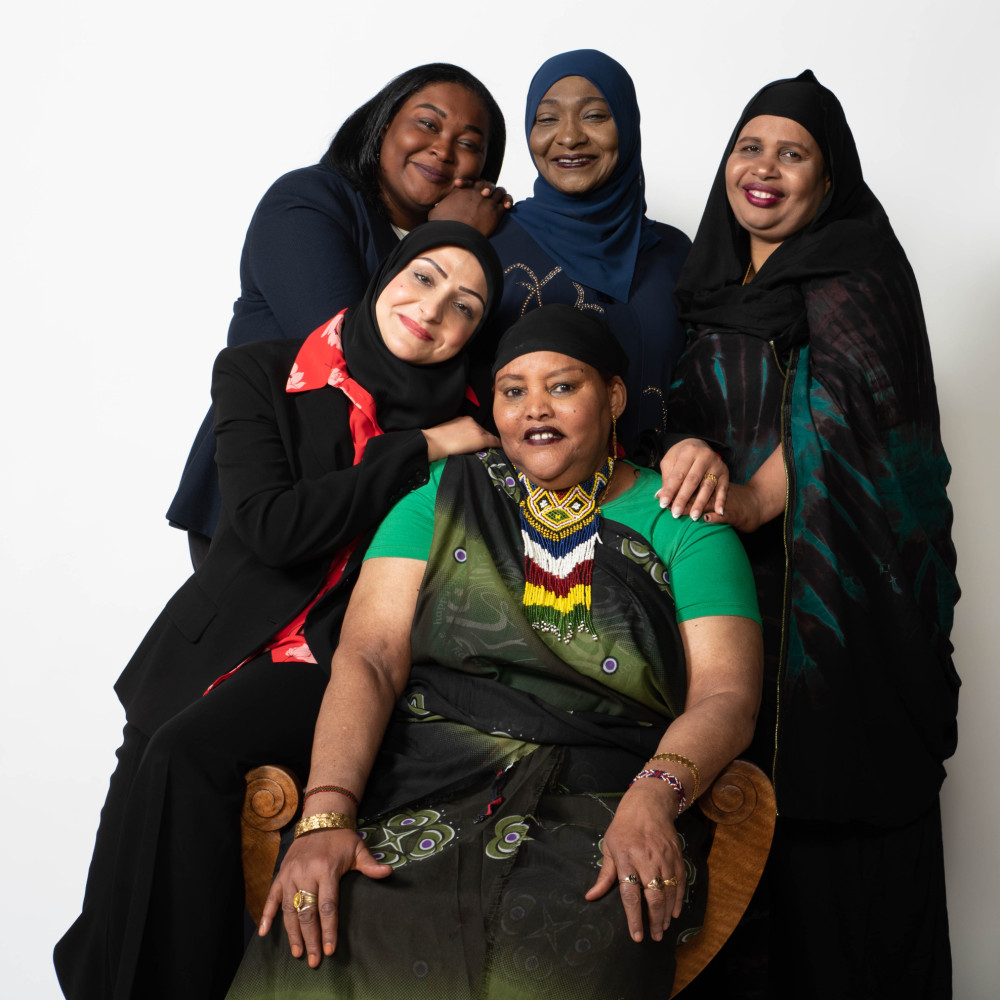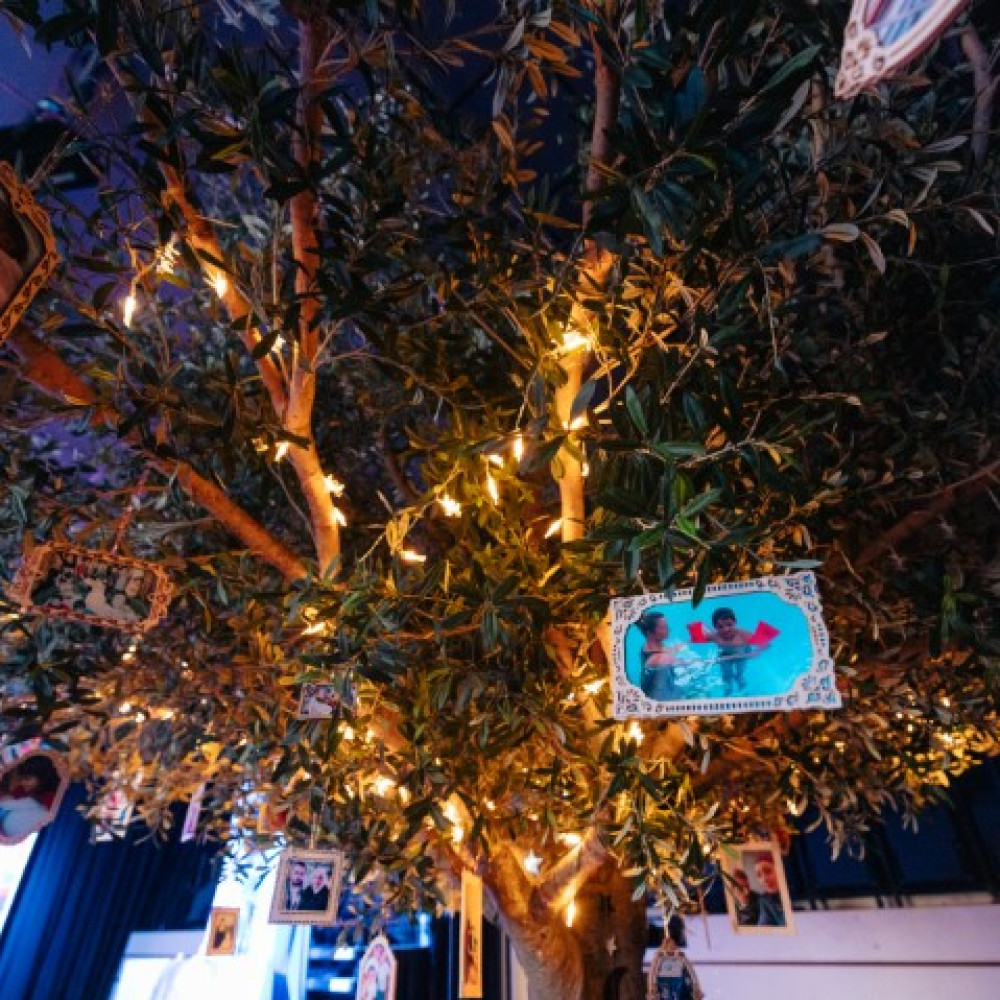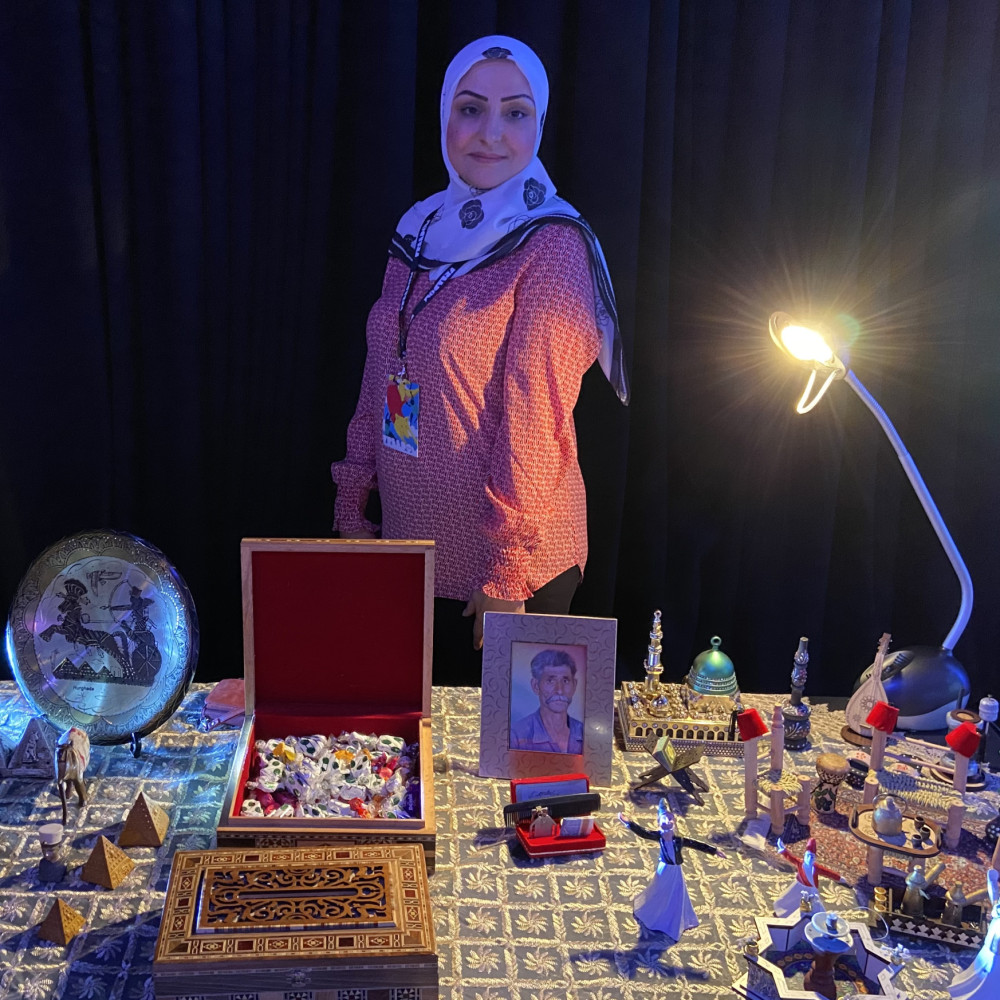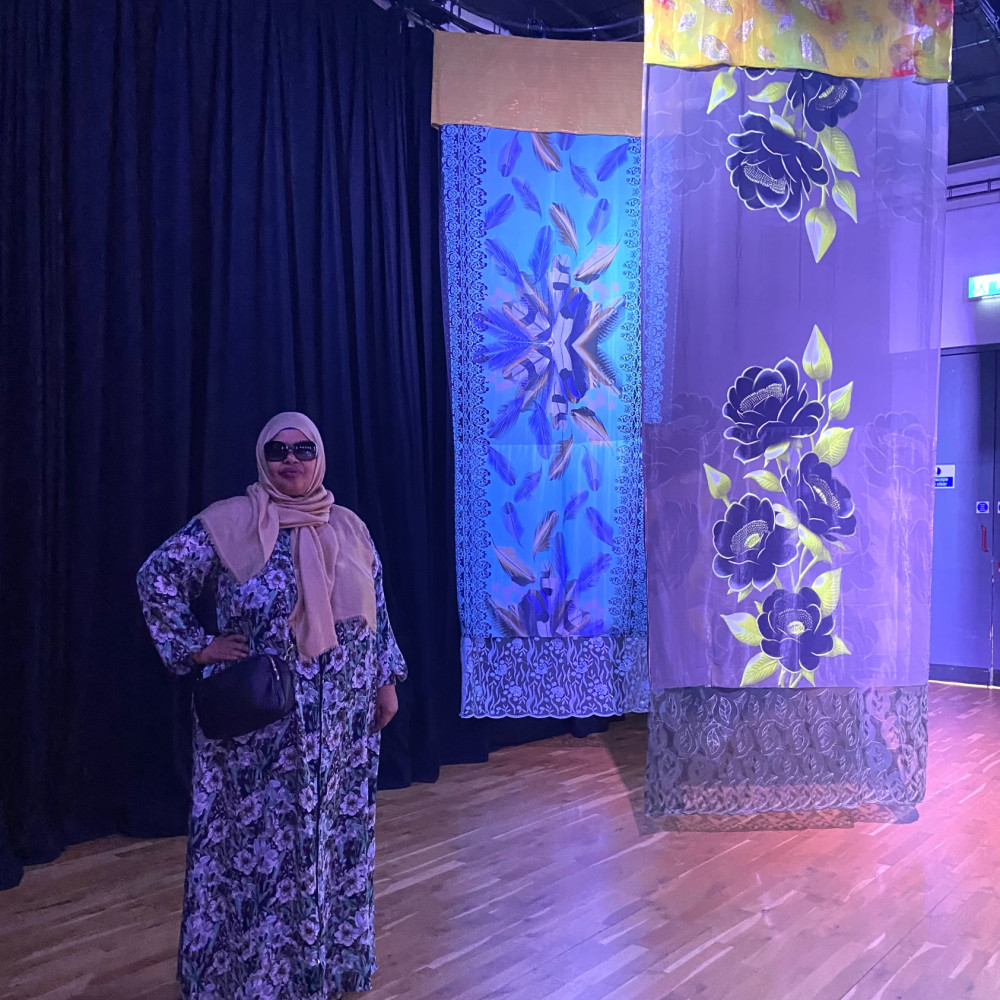Reflections on Tomorrow
By Dr Lee Karen Stow, Visual Artist & Researcher
In 2023, five women artists who survived war, conflict and persecution, came together as visual artists to present Tomorrow, a multi-media, studio exhibition. Developed as an IWM 14-18 NOW Legacy Fund commission in partnership with the Freedom Festival, the exhibition is an individual and collective response to the concept of ‘tomorrow’ as an enduring reference to hope, belief and self-determination and a way of looking to the future, together.
Collaborating long-term over many years with photographer and visual researcher Dr Lee Karen Stow, Tomorrow was collectively curated by Prof. Sarah Perks (Teesside University). The exhibition opened as part of Freedom Festival at Ferens Art Gallery in the centre of Hull, and on show for a month in September 2023. The public programme of events included meet-the-artists Saturdays and an open panel discussion ‘Talking About Tomorrow’ with special guests from Afghanistan and Ukraine and chaired by Palestinian human rights activist, Basma El Doukhi.
In Tomorrow, Arafa Gouda (Sudan/Libya), Gaida Dirar (Sudan/Libya), Nisreen Barazi (Syria), Shuke Halake Aeroro (Ethiopia) and Faisa Omar (Somalia) as the Freedom Women Collective, use visual and textile art, sculpture, performance, poetry and photography to show that in every language, tomorrow can be a promise, a practical arrangement or a philosophical proposition.



